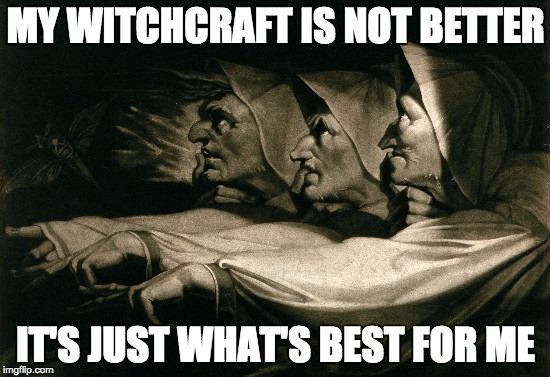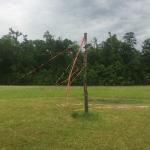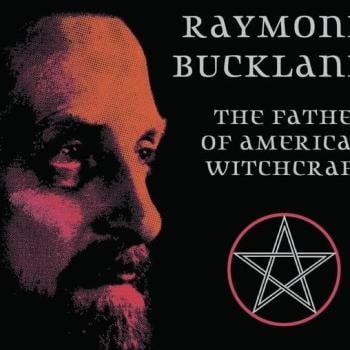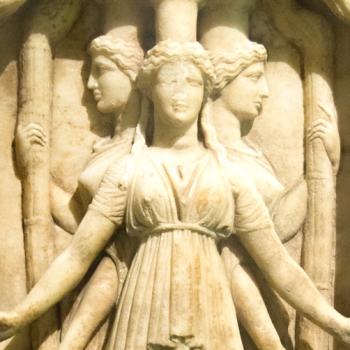“I learned that the real enemies of Craft are not the fundamentalist Christians, who have always wanted to burn us at the stake, but the directionless mass of “New Age” Pagans, who will loose irretrievably the truths our ancestors died to preserve. They will not do it deliberately; but in their eagerness to assume the trappings, symbols, and outward appearances of the Craft, they will not take the time to study its deeper meanings. And what they do not learn they cannot pass on. They will not even know what they have lost. Our ancestors died for the Craft but we must live for it, that it be passed on, whole and untarnished, to future generations. That is the challenge which confronts us now.”
-Patricia Pothier in the book Keepers of the Flame
I have seen the above quote a few times on social media the last couple of days, and while a part of me appreciates the sentiment, a larger part of me vehemently disagrees with much of it. The quote comes from the 2001 book, Keepers of the Flame: Interviews with Elders of Traditional Witchcraft in America, and Pothier’s comment appears at the end of a piece where she discusses her history as a Witch and that of her tradition, K.A.M. (Keepers of the Ancient Mysteries). The quote above is in reference to her coven Nea Elefsis, though I think that context has mostly been lost in the cut and paste arena that is Facebook.
Pothier’s quote has been occupying my thoughts for the last couple of days because it’s forced me to look at my own internal biases and deficiencies. When someone does something for a long time it becomes easy to define that something through a rather narrow lens, but I think Witchcraft is much bigger than that.

The Practices of Others Do Not Affect Me
I have never understood why someone else’s Witchcraft or Pagan practice is supposed to impact me. I feel like I should add to that previous sentence but I’m not sure exactly how to do so. How you practice Witchcraft has no impact on how I practice Witchcraft unless I choose for it to do so. I know a whole mess of practitioners who I think are less serious than I am, but I have no way of knowing that for sure, and ultimately it doesn’t matter. I don’t practice with them anyways.
There are some caveats here. Someone who sets themselves up as the be all and end all of Witchcraft traditions on the news might have some impact on my practice. But that doesn’t happen very much anymore, and the media is so diluted today that it probably wouldn’t matter. Someone who commits crimes and/or atrocious acts in the name of the Craft will probably have an impact on my life in some way, but there are bad seeds in every spiritual tradition and most people are aware of that.
Is there a “directionless mass of ‘New Age’ Pagans” out there? I guess? Maybe? Are Directionless New Age Pagans happy with their practice? Most likely, or they wouldn’t be doing it. I don’t have to like or understand what other Witches do, but if it works for them that’s probably all that matters.
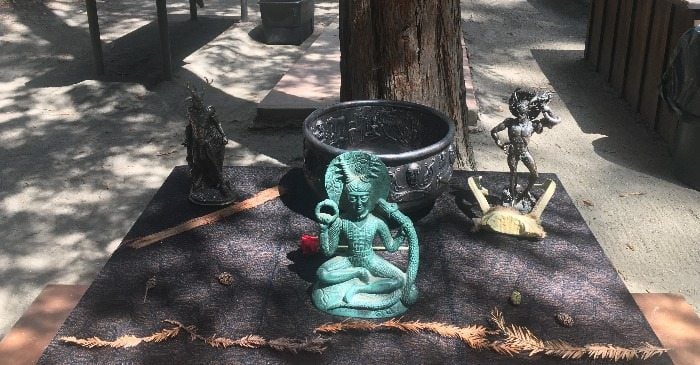
The Craft Is Not One Tradition*
“The Craft” is a term originally used to describe Freemasonry (Masons were people who practiced “the craft”), and was later applied to Witchcraft. It functions as a nice abbreviation of Witchcraft and it just sounds cool, but “The Craft” is not one tradition, it’s a variety of traditions. A person who practices the Craft in relation to Witchcraft might be a Traditional Witch, or a Gardnerian Witch, or a Feri initiate, or an Alexandrian Witch, and dozens of other things. They also might be an eclectic Witch, and some of the most accomplished Witches I know have either created their own traditions or are completely eclectic.
Tradition is highly important to me. I’m a part of an established Witchcraft tradition, and passing on that tradition in a way that conveys its deeper (not printed) secrets is something I think about often. But my lineaged tradition is not “the Craft,” it’s only one part of it. When I refer to my tradition I usually name-check it, or perhaps use the phrase “of the Wica” to indicate it.
Traditions should be valued and they should be preserved. However directionless New Age Pagans (I do really like that turn of phrase though!) are not among my initiates. And if they were, that would be on me (and my High Priestess wife) for not doing a better job of screening our initiates. I want my tradition to be passed on whole, but what people do outside of my tradition (and share and pass on) is not really my concern.
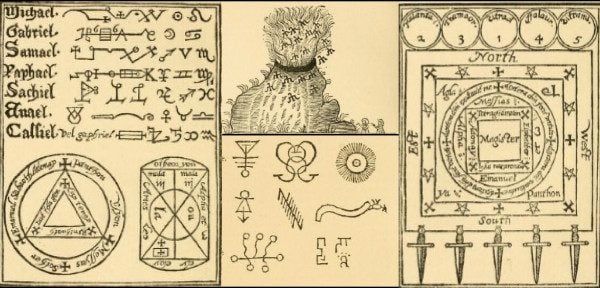
The Craft Is a Big Place
The word Witchcraft is extremely nebulous and can indicate a variety of different things. I’m sure the are a lot of Christians who are pissed off that many of us use it to describe our spiritual and magickal practices. (I’m sure they’d prefer to limit its use to knights in Satan’s service.) The word has also been used as a source of female empowerment for over a hundred years now too (which I think is awesome). I use it to indicate my spiritual and magickal practice, but I know that its use is not exclusively about that, and that some people actively bristle when I do so. Witchcraft as a practice and a word is not static, and is constantly evolving.
My friend Mat Auryn was recently nominated for an award over at Witch Way magazine, and as I was looking through their page I noticed two things: I didn’t know any of the people there (other than Mat) or even understand the categories. Favorite Glam Witch? I initially scoffed, but seriously f*#k me. Witchcraft is about empowerment, and glamour is empowerment, who am I to tell someone that their Witchcraft is wrong or silly or that they are missing its deeper meanings by being glamorous? Again, “The Craft” is a BIG place and there’s room for lots of things.
Will some people simply assume the trappings of the Craft without actually practicing it? Sure. That’s a hallmark of ANY successful spirituality, and it’s certainly nothing new when it comes to Witchcraft. As soon as Witchcraft re-emerged in the modern world several people lined up to try and take advantage of the phenomenon. Anyone remember the Cardells?
Deeper Meanings
Witchcraft creates a container for the individual Witch to have a multitude of experiences. When drawing down the moon or raising the cone of power I’m connected to deity, magick, community, and/or energy. But how I interpret those things is going to be different than how others in my coven experience them. One of the greatest things about Witchcraft is how the mysteries will be different for everyone. “Deeper meanings” are going to vary from person to person and Witch to Witch. What to me is a life changing initiation rite might result in a shrug from someone else, and what I thought was not an especially powerful working might truly resonate with the person standing next to me in circle.
As a ritual leader I think it’s important not to dictate another Witch’s experience. When running a ritual I “set up the container” but I can’t tell someone what to experience or learn while in that container. Either they will participate in the ritual and take from it what they need, or they’ll find it unsatisfactory and look for something else. Some of us dive deep into what we perceive as the mysteries of the Craft, while others are only comfortable skirting its edges. I’m fine with that and that’s why there are lots of opportunities in the Craft.
Whole and Untarnished But Not Static
Witchcraft is never ever static. Even long-established traditions are constantly adding pages to their Books of Shadows, and every coven will have its own little traditions and ways of doing things. The words might be the same from coven to coven but exactly how those words are interpreted will and does vary.
The enemies of the Craft are those who would stifle its growth or create discord to further their own agendas. Witchcraft is not a pissing contest, and never has been. Witchcraft is what you make of it. Teachers, experience, and books provide the building blocks, but how those pieces are assembled is ultimately up to the individual, and everyone will build their Craft at least a little bit differently.
*In fairness, I think Pothier understands this. In her interview she is specifically mentioning her tradition and whoever originally posted her quote left out its opening line, “With a heavy heart I dissolved the Coven, but I learned something from the experience. I learned that the real . . . .”


